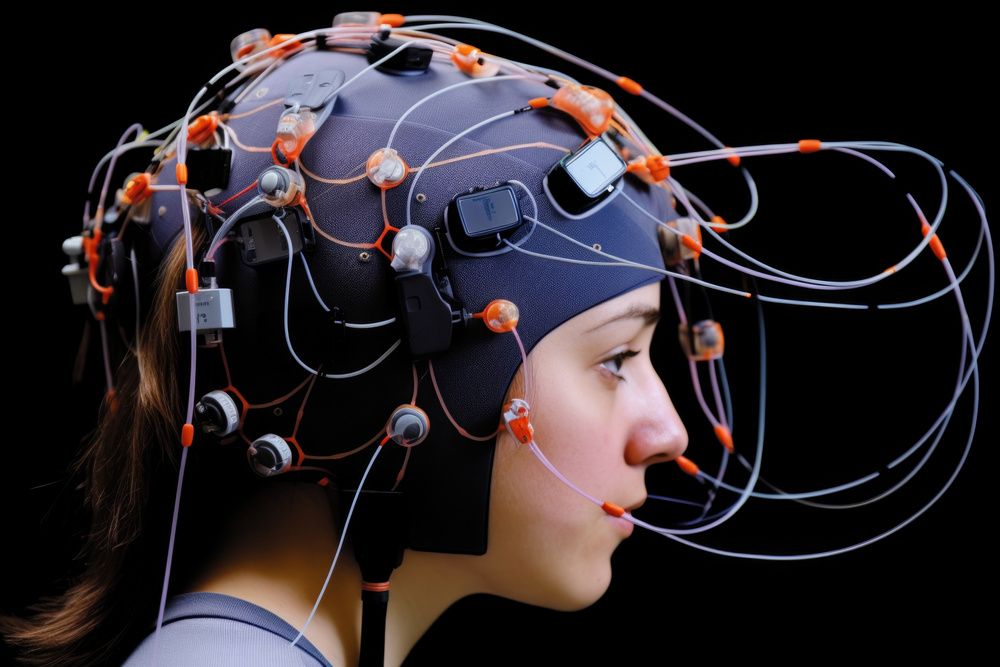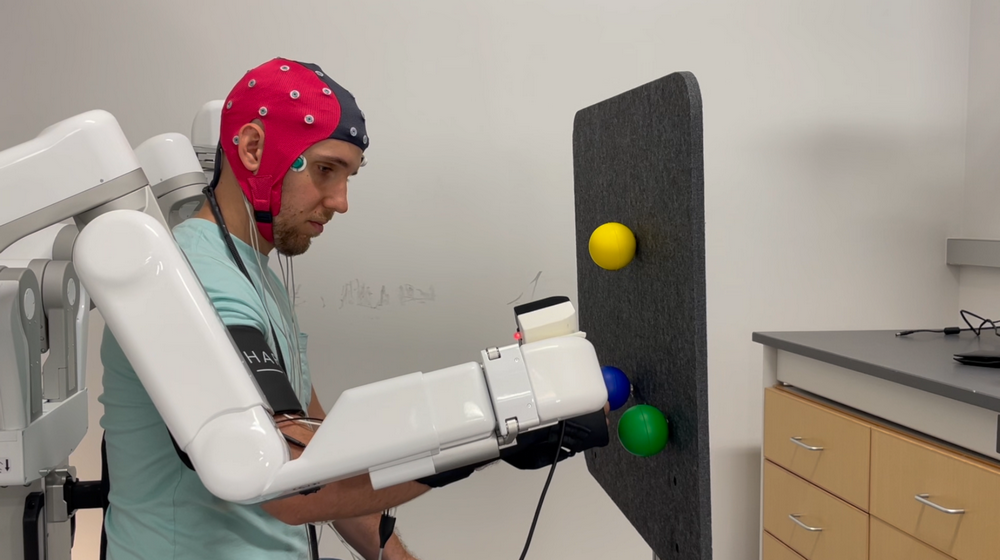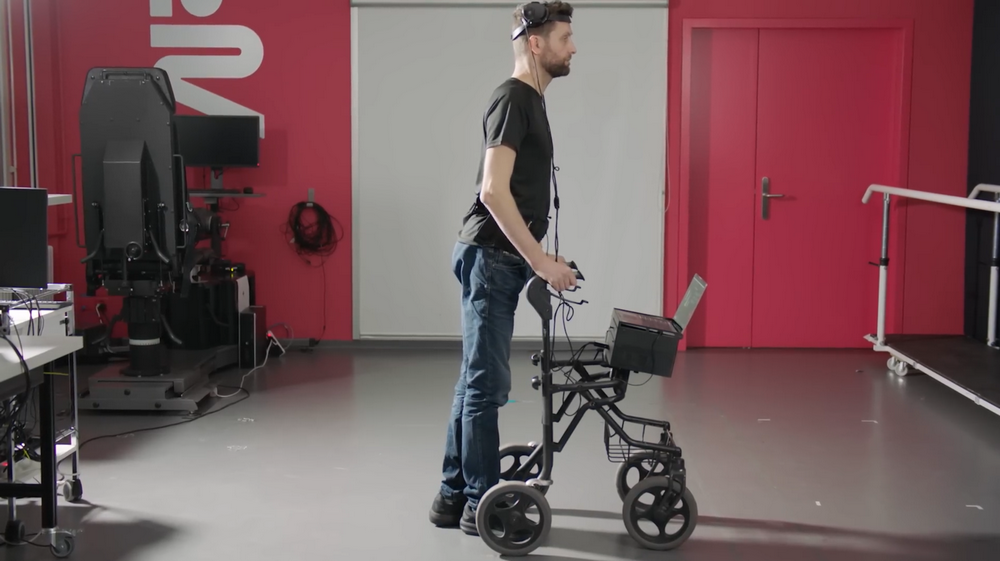
Will brain-machine interfaces transform neurology?
By Guillem Martinez Roura, AI and Robotics Coordinator, ITU
- Would you willingly ‘plug in’ your brain to control machines with your mind?
- Are you curious to know how artificial intelligence (AI) can decode brain waves and other signals from your body, weaving a virtual world into your external reality?
- And could any of this be good for your health?
The AI for Good Global Summit on 30-31 May will feature brain-machine interface (BMI) demonstrations with a keen focus on transforming health care.
To start with, BMIs – also known as brain-computer interfaces, or BCIs – could boost recovery from neurological injuries.
“Stroke, spinal cord injury, and related conditions are among the most common causes of disability worldwide, yet treatment options to promote recovery and restore function after neurologic injury remain starkly limited,” explains Daniel Rubin, a neurologist at Massachusetts General Hospital and Instructor of Neurology at Harvard Medical School. “In a few years, BCIs will be able to restore lost function and promote recovery in ways never before imagined.”

Paralysis recovery, University of Texas, Austin (US)
Image: University of Texas
The fusion of cutting-edge technologies lets the human brain communicate directly with external devices and networks.
In addition to treating paralysis and neurological conditions, BMI can help treat conditions like epilepsy and depression. It also facilitates advanced neuro-prosthetics, providing enhanced sensory inputs to artificial limbs.
Soon, it may be able to streamline communication and health monitoring among individuals with compatible implants.
Costs and benefits of BMI therapy
Frontier tech never comes cheap. Yet the benefits of enhanced brain treatment are undeniable.
“Neurological disorders are a serious global health problem with a total cost greater than the cost of heart disease, cancer and diabetes combined,” says María Lopez, CEO and co-founder of advanced neurotech company Bitbrain.
“Brain-machine interfaces can provide novel approaches for prevention, diagnosis, treatment, and rehabilitation, especially with accessible and affordable devices that can also be used in low- and middle-income countries, which are disproportionately affected by brain disorders.”
But for now, BMI is out of reach for most of the world.
“Through support from the UN and other international agencies, I am hopeful that the incredible progress being made in this field will have a pathway towards implantation around the world,” says Rubin.

NeuroRestore: Defitech Center for Interventional Neurotherapies, Lausanne, Switzerland
Image: École Polytechnique Fédérale de Lausanne / Dr. Grégoire Courtine
Untangling the ethics of human augmentation
BMI potentially allows for direct brain-to-brain communication, adding to already complex ethical considerations.
Key questions include potential influence on people’s mental states, blurred boundaries between the biological and digital worlds, challenges to personal identity and volition, freedom of thought, and the maintenance of cognitive liberty, mental integrity, and psychological continuity.
“Neurotechnology combined with AI holds an immense potential to transform lives,” said Bitbrain CEO Lopez. “Safeguarding our dignity, identity, autonomy, and privacy will be crucial. At the same time, we must ensure equitable access to these technologies, particularly for underserved communities globally.”.
The AI for Good summit presents a “fantastic opportunity” to exchange first-hand research and development insights, as well as to discuss policy and ethical guidelines, she adds.
The two-day summit will take place in Geneva, Switzerland, with options for online participation throughout. To set the scene, the International Telecommunication Union (ITU) will host the first AI Governance Day on 29 May.
Privacy is a key concern surrounding BMI development.
“Brain computer interfaces and the AI algorithms powering them are simply tools, developed by people for the purpose of helping others,” says Rubin, the neurologist.
Noting the basic ethical principles of namely beneficence, justice, and respect of persons that should guide all biomedical research, he adds: “I am excited to be a part of ensuring that these principles remain squarely at the forefront of this conversation.”
Swarms of AI applications
The AI for Good Global Summit will demonstrate more than 50 technologies that once existed only in the science fiction – but are now, with the help of AI, breaking boundaries as real-world applications.
Every demo will illustrate an innovation that could help to achieve the United Nations Sustainable Development Goals.
Check out the range of innovations coming to the AI for Good Global Summit: Play the video.
Other applications coming to the summit include collective drone swarms for disaster response, bio-inspired rescue robots, and performance-boosting exoskeletons. Summit participants can also watch the RoboCup football tournament and enjoy AI-inspired art.
AI for Good is organized by the International Telecommunication Union (ITU) – the UN specialized agency for information and communication technology – in partnership with 40 UN sister agencies and co-convened with the government of Switzerland.
Header image credit: Adobe Stock
